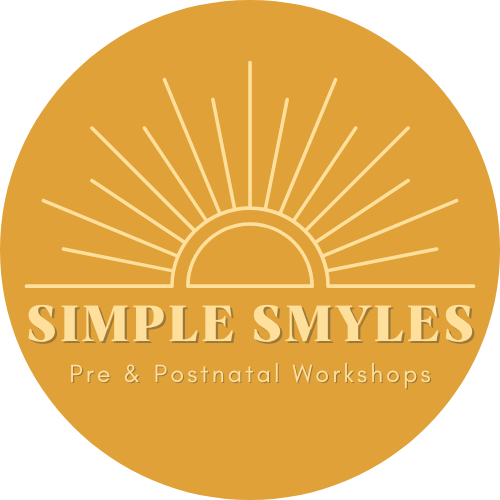Why Prenatal & Postnatal Mental Health Matters—For Both You and Baby
Let’s Talk About the Other Side of Pregnancy and Parenthood
When most people picture pregnancy, they imagine glowing skin, cute bumps, and dreamy nursery setups. When they think about postpartum, it’s soft snuggles and first smiles.
But between the Pinterest boards and baby registries, something big often gets missed: your mental health.
And here’s the truth: your emotional wellbeing is not a side note. It’s central to this whole journey.
Why Prenatal and Postnatal Mental Health Deserve More Attention
Pregnancy and postpartum are filled with rapid change. Physically, yes—but also mentally, emotionally, and spiritually. And while care providers closely monitor blood pressure, belly measurements, and baby’s heartbeat…
Too often, no one’s checking in on you.
But research (and real life!) tells us that your mental health:
Affects how you bond with your baby
Impacts your sleep, energy, and relationships
Influences your baby’s brain and emotional development
Can shape how you experience birth, recovery, and parenting
This isn’t to scare you. It’s to affirm you. You deserve support that sees your whole self—not just your uterus.
Why It Gets Overlooked—And What We Can Do About It
So why isn’t this talked about more? A few reasons:
🩺 Medical models prioritize physical outcomes.
Providers are often trained to focus on physical health and miss emotional red flags.
💬 Cultural messages push perfection.
Parents—especially birthing people—are expected to “bounce back,” stay grateful, and push through, even when they’re falling apart inside.
🤫 Shame and stigma still linger.
Many parents fear being judged if they admit they’re struggling. But vulnerability is strength, not weakness.
✨ But here’s what we know changes everything:
Community. Education. Support. When we talk about what’s real, share resources, and make mental wellness part of the conversation—not an afterthought—everything shifts.
Signs Your Mental Health Might Need a Little Extra Love
Whether you’re pregnant or postpartum, here are a few signs it’s time to check in:
Constant anxiety or racing thoughts
Feeling emotionally numb or disconnected
Trouble sleeping (even when baby sleeps)
Irritability, sadness, or hopelessness
Guilt about not “loving every moment”
Difficulty bonding with baby
Feeling like you’re “not yourself”
If any of this hits home—please know you are not alone. You are not failing. You are feeling. And there is help.
How to Support Your Mental Health—And Your Baby’s
💛 Build a village that gets it.
Surround yourself with people who lift you, check in on you, and offer support without judgment—whether that’s a partner, doula, therapist, or a friend who brings snacks and sits on the floor with you.
💛 Get educated before the overwhelm.
The more you know about the mental load of new parenthood, the better prepared you’ll be. Attend workshops, ask questions, and make a plan for postpartum—not just the birth.
💛 Seek therapy or counselling.
Talking to a perinatal therapist (even once or twice!) can help you feel seen and supported through the hard parts. In Ontario, many therapy sessions are covered under extended benefits.
💛 Join peer support spaces.
Online or in-person—connecting with others who get it can reduce isolation and remind you that you’re not the only one navigating big feelings.
💛 Normalize the full range of emotions.
You can be wildly in love with your baby and feel overwhelmed. These things are not mutually exclusive. Both are true. Both are valid.
You Deserve More Than Survival Mode
This isn’t about pretending pregnancy and parenthood are easy. It’s about being honest: this is life-changing work.
And life-changing work deserves care.
Deserves softness.
Deserves a circle of support that doesn’t flinch when things feel heavy.
Let’s rewrite the story together. One where mental health is part of the plan—not an emergency detour. One where we hold parents with as much tenderness as we hold their babies.
You don’t have to do this alone. 💛

